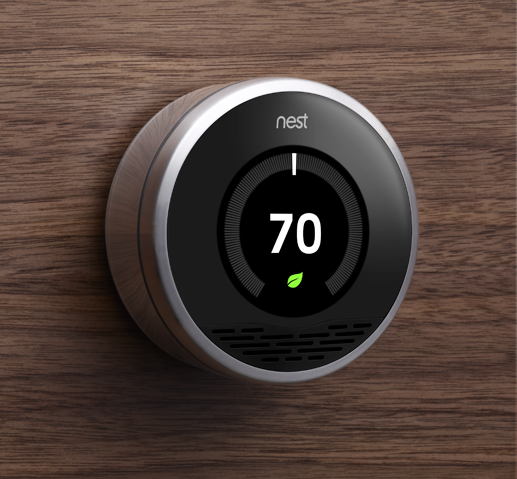Some of you have probably seen Nest, the learning thermostat. For those who haven’t, I’d strongly recommend taking a look and watching their (short) intro video.

I’m impressed by Nest, and not just by their elegant design and eco-friendly overtones. What impresses me most is the strength of their core insight. Although it’s going to seem pretty obvious, its the kind of insight few companies in the tech industry seem to get. It goes something like this:
Thermostats are not the kind of products people want to interact with. They just want their house to be the right temperature at the right time.
Nest is a product that aims to help us keep our homes comfortable while saving as much energy as possible without consuming our limited attention. No matter how easy a thermostat makes setting up a temperature schedule, this is requires too much attention for something as simple as a thermostat. With Nest, the technology does the work – you just set the temperature you want when you want it, and Nest remembers your preferences, so you never have to do that again.
Most of you have probably heard Herb Simon’s prescient quote, paraphrased as: “In the future, the scarce resource will be human attention.” Lots of technology products today compete for our attention, demanding, begging, and bargaining for more and more of it as digital products crop up in more areas of our lives. Even Apple’s products are generally guilty of demanding more attention than they return. Nest is the first product I’ve seen in awhile that takes the opposite approach, offering value in how little attention it requires. Hopefully this is the start of a trend.
Nest isn’t out yet, so I don’t know how well it actually works, and the proof of the pudding is in the eating, of course. But so far I’m rooting for its success.
